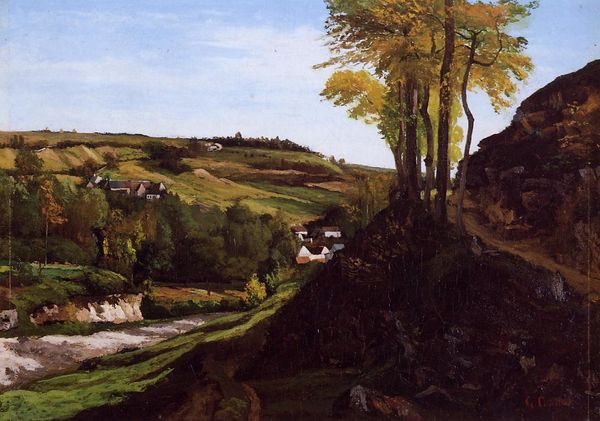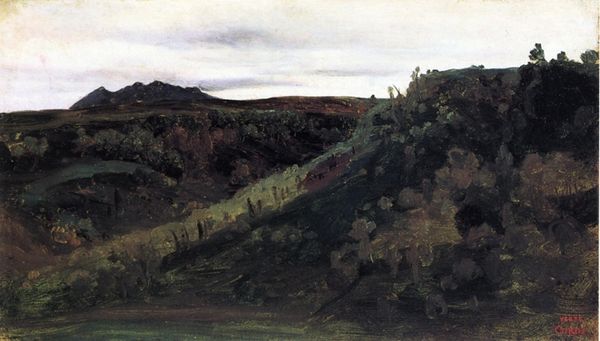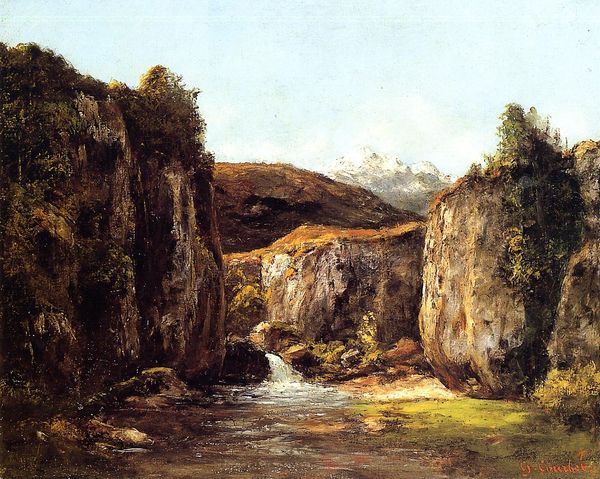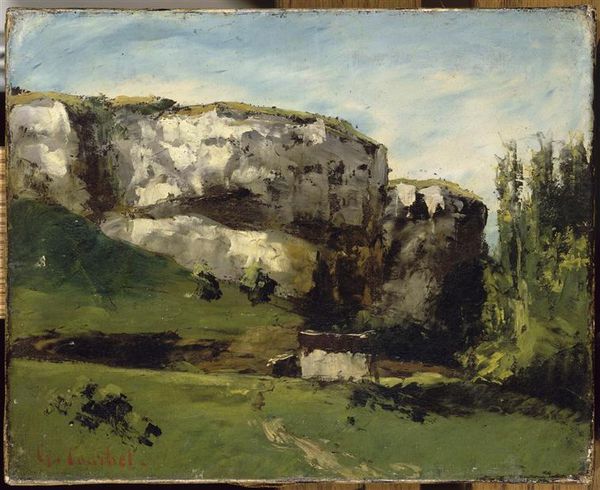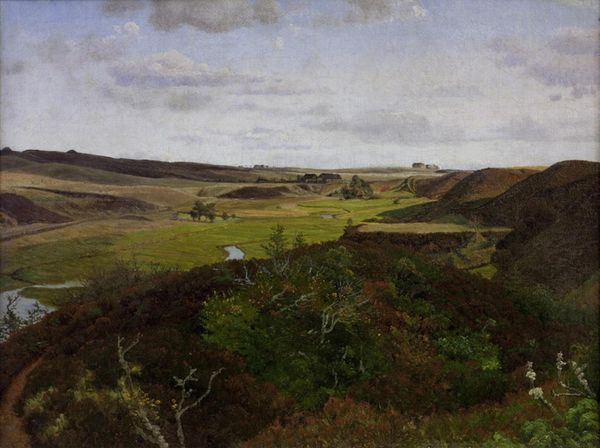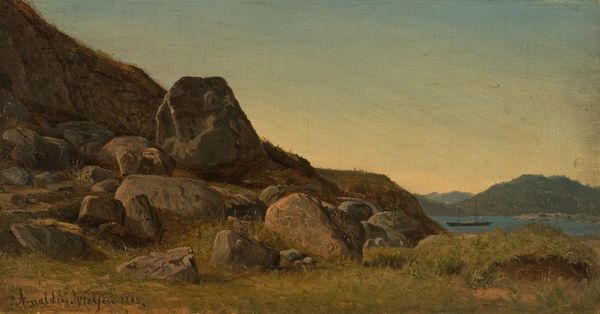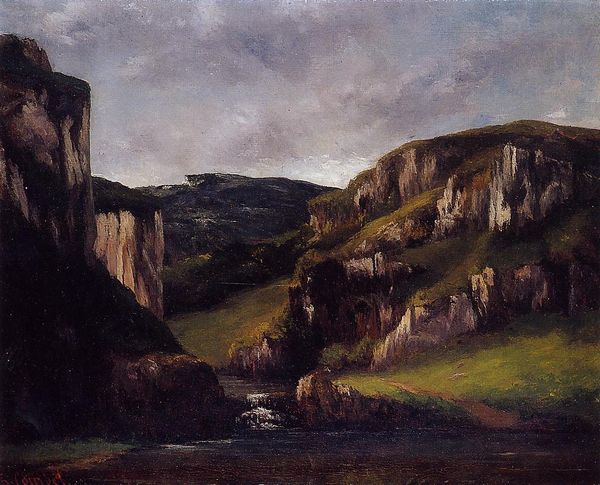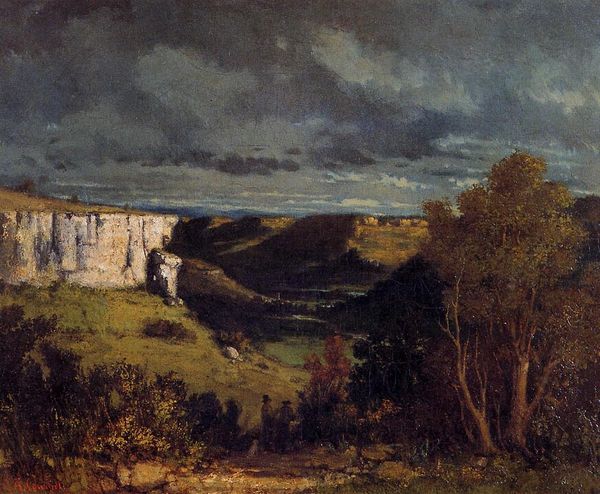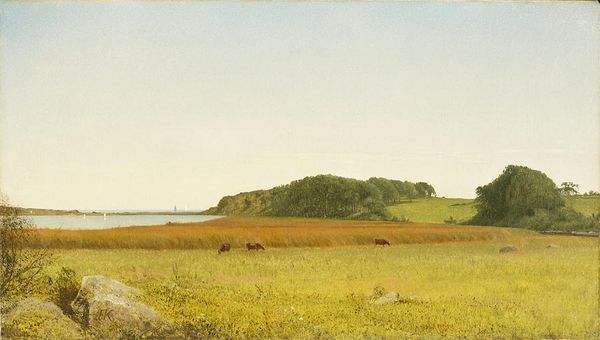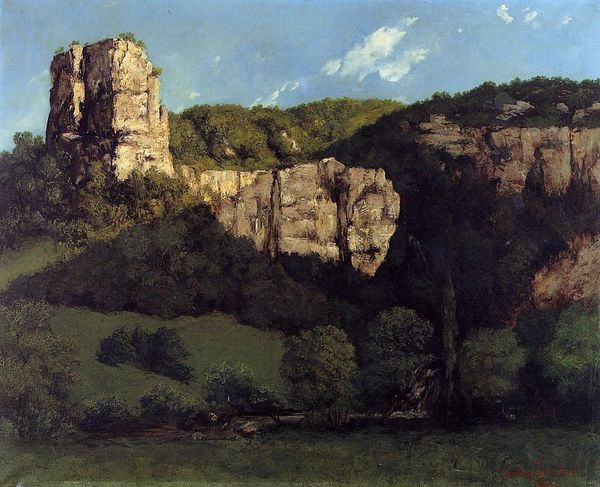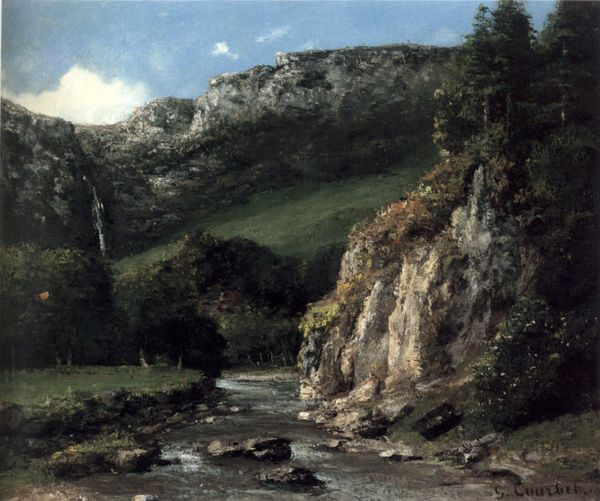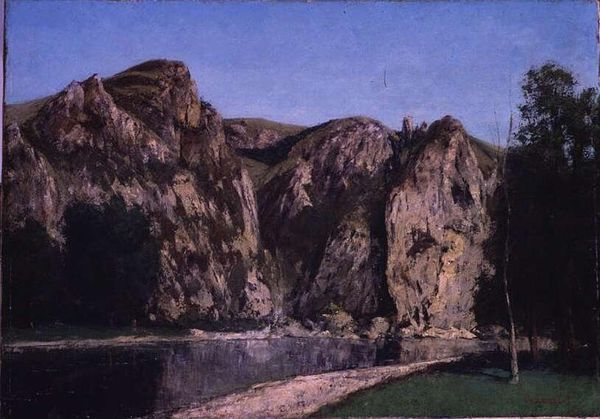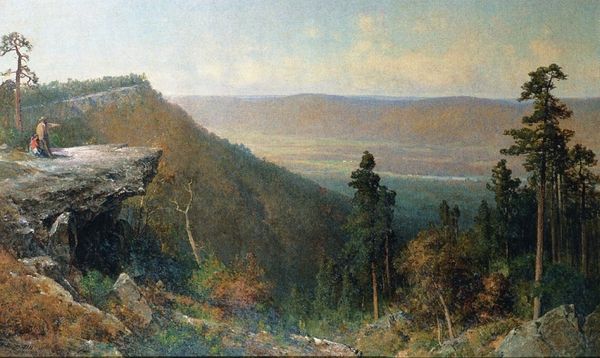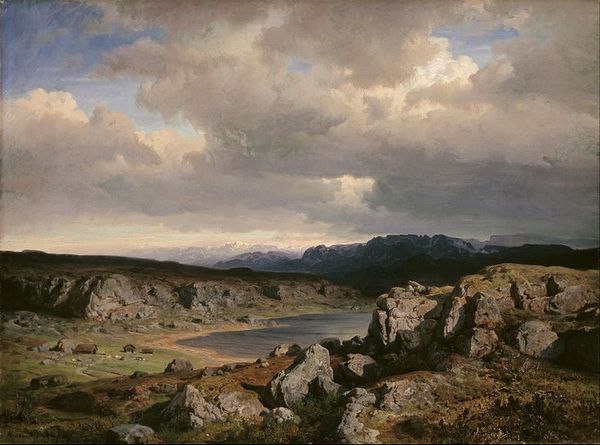
painting, plein-air, oil-paint
#
painting
#
plein-air
#
oil-paint
#
landscape
#
oil painting
#
mountain
#
genre-painting
#
realism
#
building
Dimensions: 85.5 x 160 cm
Copyright: Public domain
Editor: We're looking at "Rocky landscape near Flagey" by Gustave Courbet, an oil painting from 1855. The way the light hits the cliffs is pretty dramatic, but there’s a real sense of isolation too, almost like the buildings are being swallowed by the landscape. What strikes you about it? Curator: What I find fascinating is how Courbet uses this landscape to comment on the social realities of his time. It’s easy to see just the picturesque, but think about the rise of industrialization. Courbet, a staunch realist, presents nature not as sublime untouched wilderness, but as a terrain directly impacting, and being impacted by, human presence. Editor: How so? The buildings look so small compared to the mountains. Curator: Exactly! That deliberate contrast speaks volumes. Consider the precariousness of rural life during this era, overshadowed by powerful, often indifferent, forces. Courbet's realism sought to dismantle romantic idealizations and confront the viewer with an unvarnished truth about labor, class, and the human condition. Where do you see signs of labor reflected here? Editor: I guess, the buildings are the most obvious signifier of human presence and thus labour in a rural context... but the way he depicts nature almost feels like labour as well? Like wrestling the image out of the canvas through the rough brushstrokes. Curator: Precisely! And notice how that labor, both in the depiction and the depicted, is so closely intertwined with nature? What do you think Courbet might be trying to tell us by showing the intimate connection between labor, class, and the environment itself? Editor: That perhaps their fates are intertwined? Curator: Indeed. Seeing this landscape, then, isn't just about aesthetic appreciation, but recognizing the power dynamics inherent in our relationship with the world around us, both then and now. Editor: I didn’t think a landscape could be so…political. Now I see how it's a conversation about humanity's role and impact. Curator: Art has always had something to say!
Comments
No comments
Be the first to comment and join the conversation on the ultimate creative platform.
